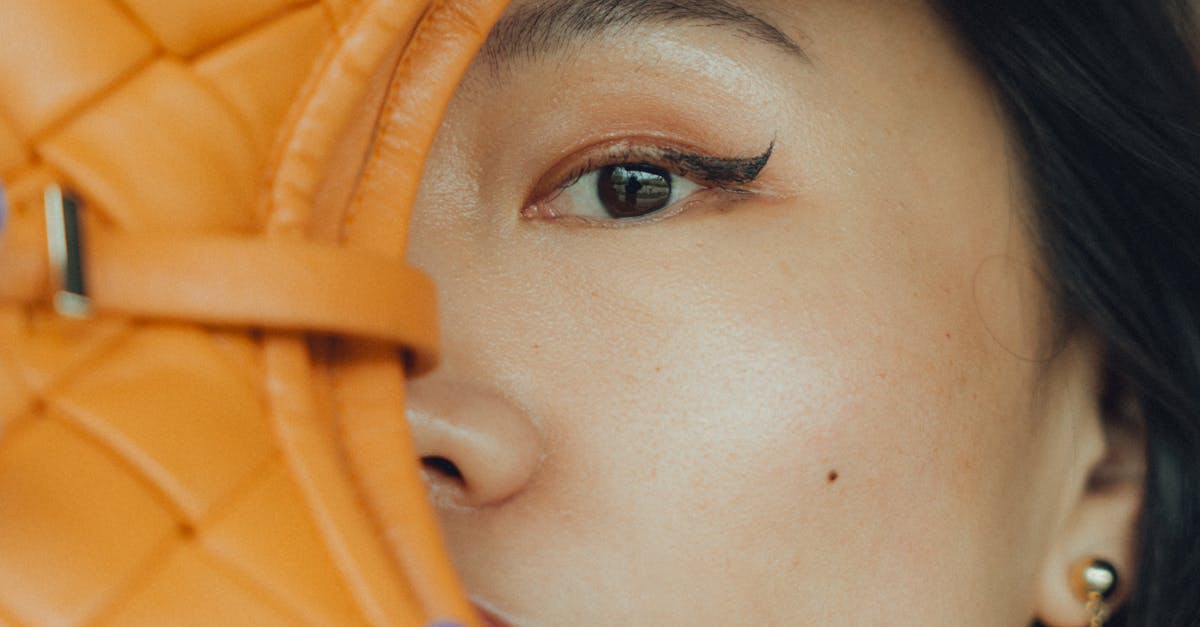
The Truth About Eye Bags: Unlocking the Mystery
“Are Men or Women More Prone to Eye Bags? An Aesthetics Expert Explains”
Wondering why you’re always tired? Maybe it’s not because you’re overworked or sleep-deprived—it could be eye bags! But what exactly are they, and what causes them in the first place?
Read on to learn more about this common issue with insights from an aesthetics expert.
Key Insights
Key Points
- Eye bags are puffy swellings that form under the eyes and can be caused by various factors, including aging, genetics, and lifestyle choices.
- While anyone can get eye bags, some people are more prone to them due to factors such as thin skin and family history.
- Certain lifestyle habits, like smoking, excessive alcohol consumption, and poor diet, can worsen eye bags.
- Simple measures like getting enough sleep, maintaining a healthy diet, and managing stress can help prevent eye bags.
- If eye bags persist or are accompanied by other symptoms, it’s advisable to consult a healthcare professional to rule out any underlying health conditions.
1. What Are Eye Bags?
What Are Eye Bags?
Eye bags are puffy swellings that form under the eyes. They can make you look tired, even when you’re well-rested. Eye bags are usually harmless, but they can sometimes be a sign of an underlying health condition.
There are a number of factors that can contribute to the formation of eye bags, including:
- Aging: As we age, the skin around our eyes loses collagen and elastin. This can lead to the formation of wrinkles, fine lines, and eye bags.
- Genetics: Some people are more likely to get eye bags than others. This is because some people inherit a tendency to have thinner skin around the eyes.
- Lifestyle choices: Poor lifestyle choices, such as smoking, drinking alcohol, and eating a poor diet, can all contribute to the formation of eye bags.
2. Are Men or Women More Prone to Eye Bags?

Are Men or Women More Prone to Eye Bags?
There is no definitive answer to this question, as there is no scientific evidence to suggest that one gender is more prone to eye bags than the other. However, some anecdotal evidence suggests that women may be more likely to experience eye bags than men.
One possible explanation for this is that women tend to have thinner skin around the eyes than men. This can make them more susceptible to the formation of wrinkles, fine lines, and eye bags. Additionally, women are more likely to experience hormonal changes throughout their lives, which can also contribute to the formation of eye bags.
Ultimately, the likelihood of developing eye bags is determined by a variety of factors, including age, genetics, and lifestyle choices. While there is no way to completely prevent eye bags, there are a number of things you can do to reduce their appearance.
3. Factors Influencing Eye Bag Formation
Factors Influencing Eye Bag Formation
A number of factors can influence whether or not someone gets eye bags. Some of these factors include:
- Age: As we age, the skin around our eyes loses collagen and elastin. This can lead to the formation of wrinkles, fine lines, and eye bags.
- Genetics: Some people are more likely to get eye bags than others. This is because some people inherit a tendency to have thinner skin around the eyes.
- Lifestyle choices: Poor lifestyle choices, such as smoking, drinking alcohol, and eating a poor diet, can all contribute to the formation of eye bags.
- Allergies: Allergies can cause the eyes to become puffy and swollen, which can lead to the formation of eye bags.
- Medical conditions: Some medical conditions, such as thyroid disease and kidney disease, can also cause eye bags.
If you are concerned about the appearance of your eye bags, there are a number of things you can do to reduce their appearance. These include:
- Getting enough sleep
- Eating a healthy diet
- Avoiding alcohol and smoking
- Using over-the-counter eye creams or serums
- Getting regular exercise
Age
Age
As we age, the skin around our eyes loses collagen and elastin. Collagen and elastin are two proteins that give the skin its strength and elasticity. When we are young, our skin is able to bounce back from stretching and pulling. However, as we age, the production of collagen and elastin slows down. This can lead to the formation of wrinkles, fine lines, and eye bags.
In addition, the skin around the eyes is very thin and delicate. This makes it more susceptible to damage from the sun and other environmental factors. Over time, this damage can lead to the formation of eye bags.
There are a number of things you can do to help prevent the formation of eye bags as you age. These include:
- Wearing sunglasses to protect your eyes from the sun
- Moisturizing the skin around your eyes regularly
- Getting enough sleep
- Eating a healthy diet
- Avoiding smoking and alcohol
Genetics
Genetics
Some people are more likely to get eye bags than others. This is because some people inherit a tendency to have thinner skin around the eyes. Thin skin is more likely to wrinkle and sag, which can lead to the formation of eye bags. In addition, some people inherit a tendency to have more fat around the eyes. This fat can also contribute to the formation of eye bags.
Studies have shown that people with a family history of eye bags are more likely to develop them themselves. However, it is important to note that genetics are not the only factor that determines whether or not someone will get eye bags. Other factors, such as age, lifestyle choices, and medical conditions, can also play a role.
If you are concerned about the appearance of your eye bags, there are a number of things you can do to reduce their appearance. These include:
- Getting enough sleep
- Eating a healthy diet
- Avoiding alcohol and smoking
- Using over-the-counter eye creams or serums
- Getting regular exercise
Lifestyle Choices
Lifestyle Choices
Poor lifestyle choices can worsen eye bags. These choices include:
- Smoking: Smoking damages collagen and elastin, which are two proteins that give the skin its strength and elasticity. This damage can lead to the formation of wrinkles, fine lines, and eye bags.
- Drinking alcohol: Alcohol can dehydrate the skin, which can make eye bags more noticeable. In addition, alcohol can cause the blood vessels around the eyes to dilate, which can also make eye bags more visible.
- Eating poorly: Eating a diet that is high in processed foods, sugar, and unhealthy fats can contribute to the formation of eye bags. These foods can cause inflammation and water retention, which can lead to puffy eyes and eye bags.
To help prevent eye bags, it is important to make healthy lifestyle choices. These choices include:
- Quitting smoking
- Limiting alcohol intake
- Eating a healthy diet that is rich in fruits, vegetables, and whole grains
- Getting enough sleep
- Managing stress
4. Preventing Eye Bags
Preventing Eye Bags
There are a few things you can do to help prevent eye bags. These include:
- Getting enough sleep: When you don’t get enough sleep, your body produces more cortisol, which is a stress hormone that can lead to fluid retention and eye bags.
- Elevating your head while sleeping: This can help to prevent fluid from pooling around your eyes and causing eye bags.
- Using a cold compress: Applying a cold compress to your eyes can help to reduce swelling and inflammation.
- Avoiding alcohol and smoking: Alcohol and smoking can both contribute to the formation of eye bags.
- Eating a healthy diet: Eating a healthy diet that is rich in fruits, vegetables, and whole grains can help to improve your overall health and reduce the appearance of eye bags.
- Managing stress: Stress can lead to fluid retention and eye bags. Finding healthy ways to manage stress can help to reduce the appearance of eye bags.
5. Treating Eye Bags
Treating Eye Bags
If you already have eye bags, there are a number of things you can do to treat them. These include:
- Using over-the-counter eye creams or serums: There are a number of over-the-counter eye creams and serums that can help to reduce the appearance of eye bags. These products often contain ingredients such as caffeine, retinol, and hyaluronic acid, which can help to tighten the skin, reduce inflammation, and improve circulation.
- Getting regular facials: Regular facials can help to improve the appearance of eye bags by removing dead skin cells, unclogging pores, and reducing inflammation.
- Using a cold compress: Applying a cold compress to your eyes can help to reduce swelling and inflammation.
- Getting enough sleep: When you don’t get enough sleep, your body produces more cortisol, which is a stress hormone that can lead to fluid retention and eye bags.
- Eating a healthy diet: Eating a healthy diet that is rich in fruits, vegetables, and whole grains can help to improve your overall health and reduce the appearance of eye bags.
- Managing stress: Stress can lead to fluid retention and eye bags. Finding healthy ways to manage stress can help to reduce the appearance of eye bags.
6. When to Seek Professional Help
When to Seek Professional Help
In some cases, eye bags can be a sign of an underlying health condition. If you have concerns about your eye bags, it is important to see a doctor to rule out any underlying causes. Some of the health conditions that can cause eye bags include:
- Thyroid disease: Thyroid disease can cause a number of symptoms, including eye bags. If you have other symptoms of thyroid disease, such as fatigue, weight gain, or changes in your menstrual cycle, it is important to see a doctor to get tested.
- Kidney disease: Kidney disease can also cause eye bags. If you have other symptoms of kidney disease, such as swelling in your legs or feet, frequent urination, or fatigue, it is important to see a doctor to get tested.
- Heart disease: Heart disease can also cause fluid retention, which can lead to eye bags. If you have other symptoms of heart disease, such as chest pain, shortness of breath, or fatigue, it is important to see a doctor to get tested.
If you are concerned about the appearance of your eye bags or if you have other symptoms that may be related to an underlying health condition, it is important to see a doctor to get evaluated.
7. Additional Resources
Additional Resources
For more information on eye bags, please visit the following resources:
These resources provide detailed information on the causes, symptoms, and treatment options for eye bags. If you have any questions or concerns about your eye bags, please consult with a healthcare professional.










